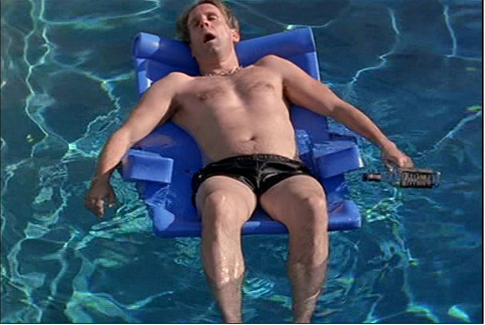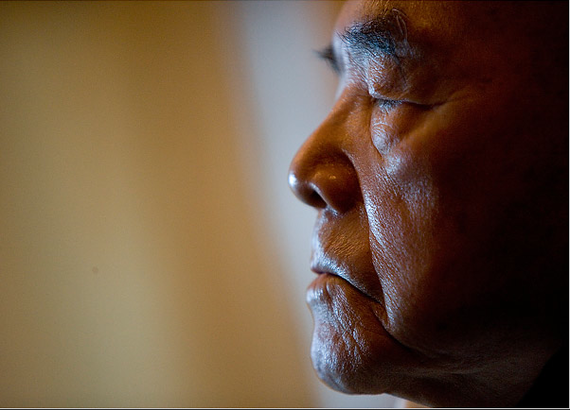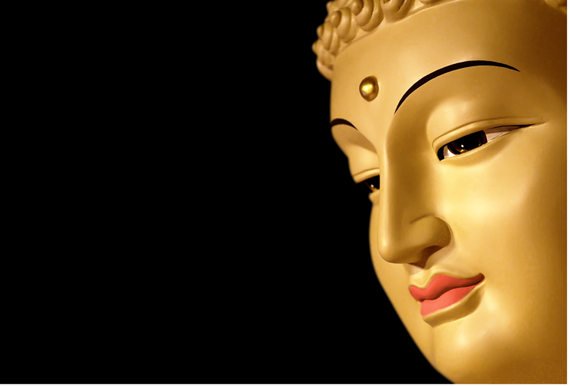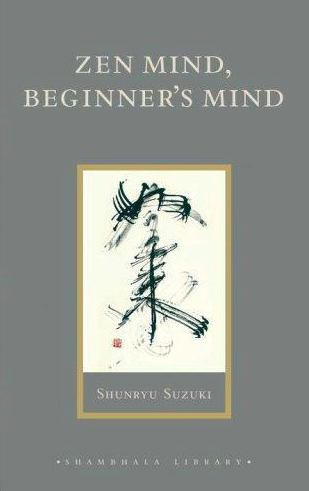My friend is freshly divorced. Mia is young and beautiful, and the wedding was a lavish celebration of their love. The marriage itself was quite short. Unsurprisingly, she is a little disillusioned. "People keep telling me it's okay, it doesn't matter," she said to me. "But if it doesn't matter, then why did we do it in the first place?"
Her life otherwise is going well. Career-wise she's had a great recent success. Yet she feels removed from the achievement. She is pleased, but not exuberant, as she might have expected to be. The peaks and troughs of her emotions, she explains, the highs and lows, have become less pronounced. For example, she recently lost a ring, a heirloom from her grandmother. In the "old days," she would have been heartsick about it. Instead, she felt a pang of sorrow, and then more or less let it go. When she later found the ring again, it was with gratified calm, not buoyant delight.
I envision her emotional range as a cardiograph or a lie detector. Not the sharp spikes of pain and pleasure, but a shallow oscillation off the flatline. In a way, she has attained a desirable state of equilibrium. People who vacillate wildly in mood we call bipolar, and people with no fluctuation at all we call affectless. Obviously we all aspire to the middle ground, the healthy hills and valleys. Yet the closer you get to absolute zero, the straight humming line, the calmer and clearer your life must become. Unmuddied by hot emotion, uncluttered by attachment to material objects, you live in the eye of the storm, watching it whirl around you.
This is a very Zen idea: the attainment of emptiness. The Buddha's enlightenment is described not as a rapturous blaze of ecstasy, but the placid dissolution of self into the harmonious weft of the universe. He became One with everything, and his particular identity--his specific willful self--disappeared. Enlightenment, satori in Zen practice, is not and cannot be a goal, because goals are attachments. It's nothing special, Zen masters explain. You attain it by simply being.
This is extraordinarily difficult. It's why people spend lifetimes trying to "master" it, a doomed effort, for when you try to do something, you are attaching to a particular result, and attachment is the root of all suffering, says Buddha. Yet surely, we retort, you must attach to some things, like meaningful relationships, and professional outcomes. Otherwise we will be jobless and alone. Buddha merely smiles. This is the paradox. How to live in this world, in our result-driven culture, and succeed without seeking success, be happy without pursuing happiness, and treasure every grain of sand that is slipping through our fingers without lamenting the loss.
It borders on apathy, this kind of detachment. You don't care about anything. Mia is in this phase -- not caring. It's difficult to tell, she explains, whether it's Zen or nihilistic. Nihilism also approaches nothingness, just from the opposite angle. You don't care because nothing matters; the elaborate façade of life doesn't mean anything. Nothing is real, everything is a perception, even we are perceptions of ourselves and others. We exist in a vacuum, an absence of morals, absolute knowledge, intrinsic purpose. The true nihilist, like the Zen master, is beyond ego and desire, rage and joy, becoming imperturbable, unmoved by trivialities. Serene.

The nihilist's serenity, as I envision it, is the icy indifference of outer space, forsaken by God and light. The Zen master's serenity is a springtime field overgrown with grass and ringing with insects and birds. These are my poetic conceptions, of course, not actual states of being. No person, even the most vacant or enlightened, inhabits absolute calm all the time, nor would you want to. Emotions are crucial. Our vast and rich emotional range defines our humanity. As does our creation and adoration of useful, aesthetic objects, which are designed to be admired and make our lives better. The problem comes when we cling to our emotional memories, letting them cloud our mind while we miss the ever-passing present altogether. As for our prized possessions, we come to believe they represent our essential character, so when we lose them we feel like we've lost something of ourselves.
Mia said that she lost so much of her stuff during the divorce -- money, expensive cameras, furniture -- that when she later lost her grandmother's ring, she was accustomed to transience of beloved objects. They are merely things, after all, decorating our rooms and adorning our bodies. You could say that they don't mean anything, or that they mean everything, because every atom of everything is equally precious as part of the magnificent cosmos. But they don't belong to us. Nothing belongs to us, not even our bodies, our existence. It's all on loan, borrowed for a brief, glorious instant.
This ephemerality of life makes us feel we need to do something exceptional with it. Find our soulmate, become the boss, produce a masterpiece, earn a good seat in the afterlife, favorable karma. Our accomplishments will make our otherwise insignificant lives matter. Except every life is supposed to matter already, in every moment, even if it becomes nothing once again.
"Everyone comes out from nothingness moment after moment," says Shunryu Suzuki, in his lovely classic treatise on the Way, Zen Mind, Beginner's Mind. "Something which comes out of nothingness is naturalness, like a seed coming out of the ground. The seed has no idea of being some particular plant, but it has its own form and is in perfect harmony with the ground, with its surroundings... And there is no trouble... Moment after moment we have true joy of life."
Be the seed, he seems to be saying, not the plant, fixed into its finalized form. The seed is everything and nothing at the same time.



